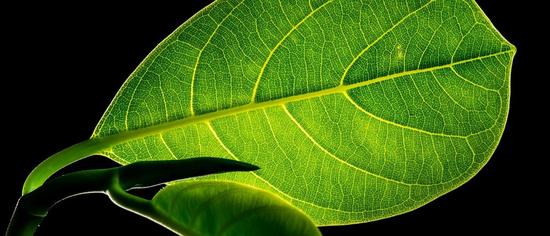
Privacy statement: Your privacy is very important to Us. Our company promises not to disclose your personal information to any external company with out your explicit permission.

According to Futurism, artificial photosynthesis (AP) is the process of using sunlight to produce hydrogen, oxygen, and organic matter under manual intervention. Bill Gates called this technology a magical potential. If we can improve the efficiency of the reaction process, we hope to provide enough clean fuel for future cars through artificial photosynthesis.
Photosynthesis is one of the most basic forms of response that life depends on. Plants rely on photosynthesis to absorb solar energy. Plants, as food, feed thousands of animals on Earth, including humans. Through photosynthesis, plants convert carbon dioxide and water into carbohydrates, providing nutrients for themselves and releasing oxygen for humans to breathe. Can humans follow the natural process and use sunlight to produce hydrogen as a fuel? "If it works, it will be magical. With liquids, you can get rid of batteries that have intermittent defects. You can put the liquid in a large jar and use it with the light," Bill Gates said.
Artificial Photosynthesis (AP) is designed to use water from the oceans and even rivers as raw materials and break down into hydrogen, oxygen, and organic matter with the participation of sunlight. There are currently fuel cells for APs that use electric vehicles for oxygen. The same technology can also be used to store solar energy. Liquid fuels such as liquid hydrogen have a distinct advantage over batteries, with the former being lighter and smaller.
The product of AP can also be used to produce methanol for internal combustion engines. China has now become the world's largest consumer of methanol. Gas stations will mix natural gas and methanol in a certain proportion (natural gas takes up 15% or less) to supplement energy for private cars. In the fuel for transport vehicles, the methanol ratio can be as high as 85%.
The AP reaction is slightly modified and can be combined with bacterial metabolic engineering to produce nitrogen-producing bacteria. This technology can produce nitrogen fertilizer in the soil without the need of conventional fertilization, and increase crop yield. These bacteria can absorb the hydrogen produced by AP and use it to produce a range of products including drugs, fertilizers, fuels and plastics.
The main challenge for APs is the low efficiency of photosynthesis in nature. Plants can only convert about 1% of carbon and water into carbohydrates. However, the efficiency in the laboratory has increased to about 10%. In Melbourne, Australia, researchers at Monash University even increased the conversion rate to 22%.
As an advocate of new energy technologies, Bill Gates is also optimistic about AP. Gates teamed up with dozens of world's top technology companies to establish the Breakthrough Energy Coalition (BEC), which aims to use private funds to supplement government funding deficiencies and support clean energy research. Gates believes that it is imperative to develop new energy sources such as APs and hopes that the energy sector will support them. “We want to surprise them that these energy alternatives are not only feasible but also economical,” Gates said in an interview with Big Think. "If we want to avoid global warming to a dangerous point, we need to move at full speed." (Sun Wenwen)
September 19, 2022
September 09, 2022
September 08, 2022
September 09, 2022
November 03, 2022
この仕入先にメール
September 19, 2022
September 09, 2022
September 08, 2022
September 09, 2022
November 03, 2022

Privacy statement: Your privacy is very important to Us. Our company promises not to disclose your personal information to any external company with out your explicit permission.

Fill in more information so that we can get in touch with you faster
Privacy statement: Your privacy is very important to Us. Our company promises not to disclose your personal information to any external company with out your explicit permission.